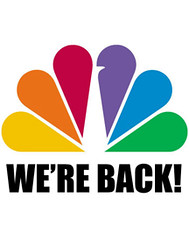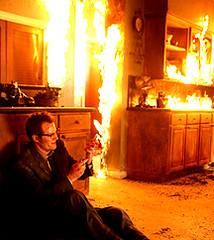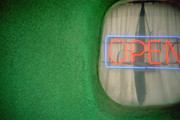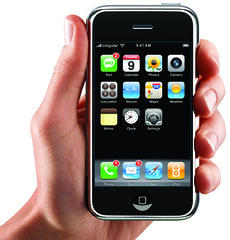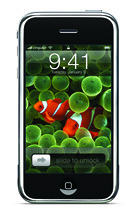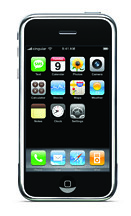 Apple isn't known for its social network prowess. Ping is marginal as a social network at best. It functions like a network, but doesn't feel like one.
Apple isn't known for its social network prowess. Ping is marginal as a social network at best. It functions like a network, but doesn't feel like one. But there is something that Apple is doing right, when compared to the rush of Google+, Facebook, and Twitter to generalize the point of being all things to all people.
And that is, for the most part, simplifying things to a singular or primary purpose. We see it in how it treats apps; and the same concept works for niche social networks.
iTunes Festival 2011 London solidifies broadcast-digital convergence.
Downloading the iTunes Festival 2011 London for review was almost a no-brainer. And if you ask me or the reviewer, it's not perfect but nonetheless brilliant.
It also has a primary purpose. You can watch a festival concert streamed live or (since most are in the afternoon) after work.
Applied to television networks, it could potentially give people the ability to watch a television program on the first run or automatically have it waiting for them. And depending on how networks want to play it, they could provide a permanent collection or limited-time viewing opportunities with the option to purchase an episode or series for download.
There may even be some potential non-intrusive revenue models beyond selling the program. For iTunes, the buy button only appears before and after the concert or anytime you pause it. It's clean. A television broadcaster might include related merchandise and/or sponsors just as easily, and (although it ought to be reflected in the price point) embedded commercials.
The real bonus in terms of the iTunes Festival 2011 London, of course, is that it truly makes the concept of any device, anywhere, anytime a reality. You can play it on your phone, on your tablet, or on your television. And, depending on how cloud services come along, you won't have to worry about storage or (hopefully) safety.
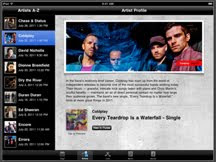 Our reviewer also considered that a social networking function might be welcome too. It could be fun, he concluded, to chat with people who check-in with a live streaming performance. The function could be optional, of course. (Sometimes it's nice to skip the socialization of everything.) Or perhaps a network/app feature could open up afterwards, allowing viewers to chat about the show.
Our reviewer also considered that a social networking function might be welcome too. It could be fun, he concluded, to chat with people who check-in with a live streaming performance. The function could be optional, of course. (Sometimes it's nice to skip the socialization of everything.) Or perhaps a network/app feature could open up afterwards, allowing viewers to chat about the show. But what I especially like about the festival and apps in general is that they keep online experiences tied to how we perceive offline experiences. If you are in the iTunes Festival 2011 London app, you are at a concert. And any behavior, even if you are watching from home, is indicative of a concert hall.
Why apps and niche social networks will have a longer lasting life.
You won't find that on increasingly bloated social networks. You might want to share an article, but your friend wants you to join a video chat. You might want to post a picture, but then get caught up in a barrage of instant messages. You might want to share something funny, but then an associate will send you Farmville requests. And brands, well, they're even worse.
This is quickly becoming one of the problems with bloated social networks. As much as you can dictate your own experience, your friends (and any brands you follow) are being given more and more power to dictate what you will do. (Heck, they are even spilling into search relevance, no thanks to +1.)
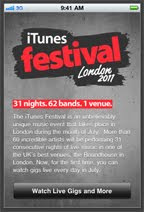 But all this stands to reason. Big big open generalized networks are like giant rooms with everything going on at the same time and no walls to distinguish anything. The stereo is playing, the television is on, and ten people are trying to perform.
But all this stands to reason. Big big open generalized networks are like giant rooms with everything going on at the same time and no walls to distinguish anything. The stereo is playing, the television is on, and ten people are trying to perform. The result is chaos, something I'm always prepared for when I sign on to any of them. One person is talking politics. Another is telling jokes. Some are watching television. Others are playing games. And half of them are screaming "look at me" or "look at my wall."
An app or well-defined niche network, in contrast, is exactly the opposite. If you sign in, you have a reason to be there and everybody else who might be signed on is there for mostly the same purpose too. It feels more than right. It feels like life.








